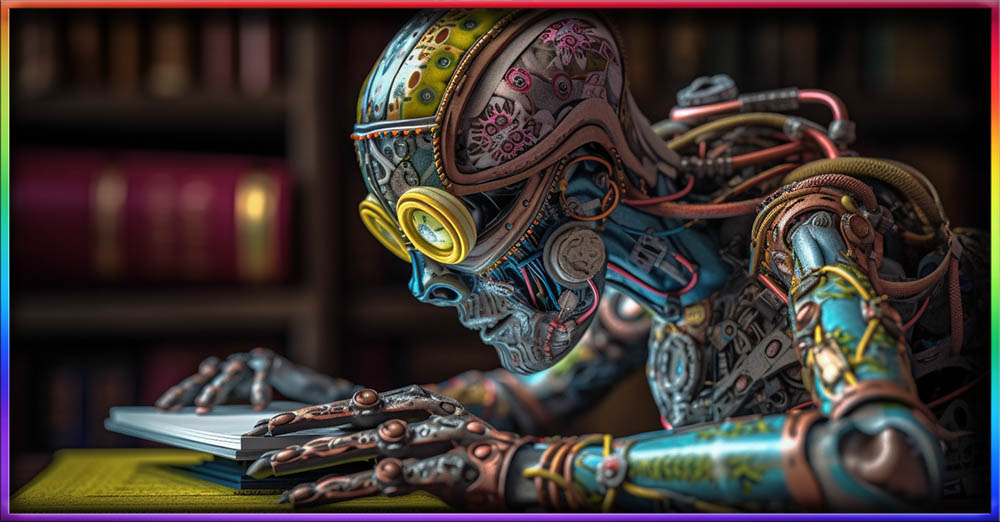
ChatGPT and Its Applications for English Literature
Revolutionize Your English Literature Studies with ChatGPT
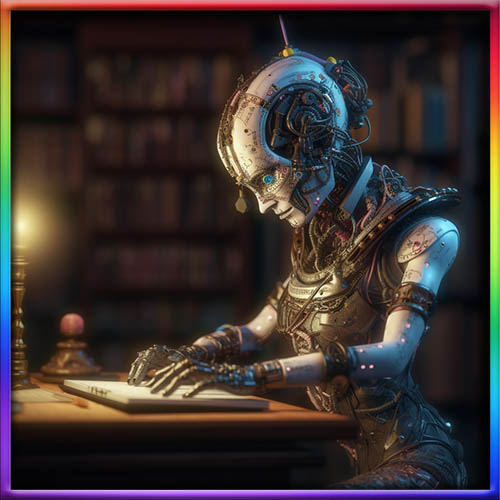
As many regular readers of this blog know, I am an Associate Professor in an English Department at a very well-regarded national university in Taiwan where I teach undergraduate (BA) and graduate students (MA and PhD). English Literature graduate students are tasked with analyzing and interpreting some of the most complex and profound works of literature ever written. From Shakespearean sonnets to modern novels, the study of English Literature requires an exceptional level of critical thinking, close reading, and analytical writing.
To excel in this field, students must be able to not only understand literary works on a deep level, but also communicate their insights and arguments effectively through formal academic writing. This is where ChatGPT, a Large Language Model trained by OpenAI, can provide a valuable tool for students to improve their understanding, writing, and proofreading skills in English Literature. Do keep in mind That while I reference ChatGPT specifically in this essay, there are other LLMs with similar ability one could also use effectively. Also note that while this essay is aimed at using artificial intelligence to aid in the study of English Literature, most of the principles will apply to other fields of study as well.
ChatGPT is capable of generating human-like text based on a given prompt or query, making it an incredibly versatile and powerful tool for students. By utilizing ChatGPT, English Literature graduate students can streamline their research process, generate thesis statements and research questions, and even improve their proofreading and editing skills.
This essay will explore in-depth how English Literature graduate students can use ChatGPT to improve their understanding of literary works, enhance their academic writing, and improve their proofreading and editing skills. With practical examples and step-by-step instructions, this essay will provide a comprehensive guide for English Literature graduate students looking to take their skills to the next level.
Unleash the Power of ChatGPT to Deepen Your Understanding of English Literature
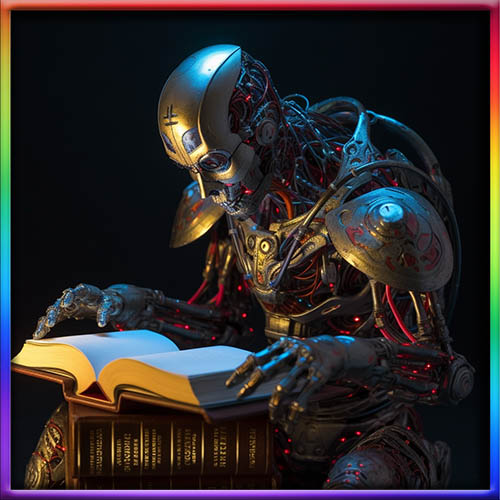
One of the primary challenges of studying English Literature is being able to effectively analyze and interpret complex literary works. ChatGPT can be an invaluable tool for graduate students in English Literature, as it can assist in close reading and analysis of literary texts, and help students to identify literary devices and techniques.
Close reading is a crucial skill for English Literature graduate students, as it involves a thorough analysis of a text in order to understand its meaning, themes, and literary devices. ChatGPT can be used to enhance close reading skills by generating summaries and analyses of literary works based on a given prompt. By inputting a passage or specific line from a literary work, ChatGPT can generate a summary of the passage, highlighting key themes, motifs, and literary devices used by the author. This can provide a starting point for further analysis and help students to identify important elements of the text.
ChatGPT can also be used to identify literary devices and techniques used by authors, such as metaphors, similes, and imagery. By inputting a specific line or passage, ChatGPT can generate an analysis of the literary devices used, highlighting how they contribute to the overall meaning and themes of the work. This can help students to better understand the author’s intent and provide a foundation for further analysis.
In addition, ChatGPT can be used to assist in comparative analysis of literary works. By inputting two different literary works, ChatGPT can generate a comparison of the themes, motifs, and literary devices used in each work. This can help students to identify similarities and differences between works, and provide a deeper understanding of the literary movements and historical contexts in which they were written.
Overall, using ChatGPT to improve understanding of English Literature can be an incredibly useful tool for graduate students. By assisting in close reading, identifying literary devices and techniques, and facilitating comparative analysis, ChatGPT can help students to better understand complex literary works and develop their critical thinking skills.
Elevate Your Academic Writing with ChatGPT’s Writing Assistance

In addition to assisting with understanding and analysis of literary works, ChatGPT can also be an excellent tool for improving academic writing skills. For graduate students in English Literature, academic writing is a critical component of their coursework, and being able to write effectively and persuasively is essential for success.
One way ChatGPT can be used to improve academic writing is by generating thesis statements and research questions. By inputting a prompt or topic, ChatGPT can generate a range of potential thesis statements and research questions, providing a starting point for further research and analysis. This can be particularly useful for students who are struggling to formulate a strong thesis or research question.
Another way ChatGPT can be used for academic writing is by generating outlines and structure for research papers. By inputting the key points or arguments that will be covered in a research paper, ChatGPT can generate a basic outline or structure for the paper. This can help students to organize their thoughts and arguments, and ensure that they are presenting their ideas in a clear and logical way.
Furthermore, ChatGPT can assist with improving academic writing by generating examples and supporting evidence for arguments. By inputting a thesis statement or argument, ChatGPT can provide examples and evidence to support that argument, helping students to strengthen their case and make more compelling arguments.
Using ChatGPT for academic writing can help English Literature graduate students to streamline their research and writing process, and generate more effective and persuasive arguments. By providing thesis statements, research questions, outlines, and supporting evidence, ChatGPT can assist students in developing stronger academic writing skills and producing high-quality research papers.
How ChatGPT Can Transform Your Proofreading and Editing Process
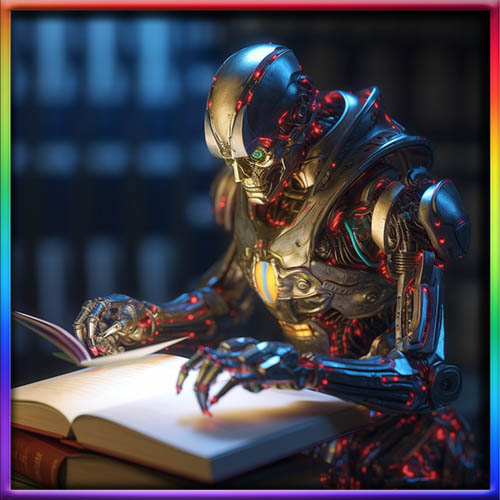
Once a research paper or essay has been written, the next step is proofreading and editing. This is a critical step in the writing process, as it ensures that the final product is free of errors and presents ideas in a clear and concise manner. ChatGPT can be an incredibly useful tool for proofreading and editing, as it can identify errors in grammar, punctuation, and syntax, and provide suggestions for improvement.
One way ChatGPT can be used for proofreading is by identifying common grammatical errors. By inputting a piece of text, ChatGPT can analyze the text for common grammatical errors, such as subject-verb agreement, pronoun usage, and sentence structure. This can be especially helpful for those similar to a number of my own students who are non-native English speakers who may struggle with English grammar rules.
Another way ChatGPT can be used for editing is by identifying and suggesting improvements for sentence structure and syntax. By inputting a sentence or paragraph, ChatGPT can provide suggestions for improving sentence structure, such as by using more varied sentence lengths or by avoiding common sentence construction errors.
Furthermore, ChatGPT can assist with proofreading and editing by identifying and suggesting improvements for word choice and vocabulary. By analyzing a piece of text, ChatGPT can identify repetitive or overused words and provide suggestions for alternative vocabulary. This can help to improve the overall flow and readability of a piece of writing.
In addition, ChatGPT can also be used to check for plagiarism. By inputting a piece of text, ChatGPT can analyze the text for similarities to other published works, helping to ensure that the final product is original and not plagiarized.
Overall, using ChatGPT for proofreading and editing can be an incredibly helpful tool for English Literature graduate students. By identifying grammatical errors, suggesting improvements for sentence structure and syntax, providing suggestions for alternative vocabulary, and checking for plagiarism, ChatGPT can help students to produce polished and error-free academic writing. I would also note this iis most helpful when using prompts that not only identify issues with a text but also clearly explain why changes are suggested.
Transform Your Academic Writing with ChatGPT
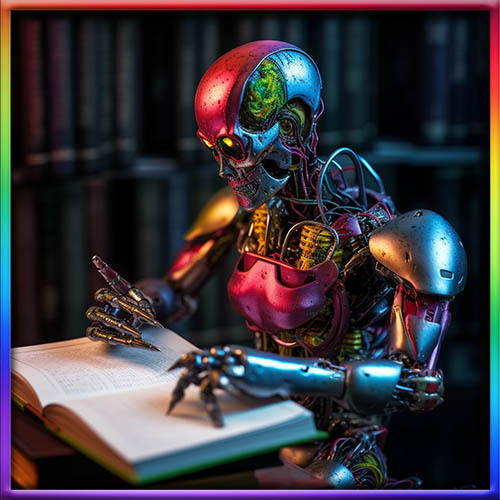
ChatGPT can be an incredibly valuable tool for English Literature graduate students. By assisting with understanding and analysis of literary works, providing assistance with academic writing, and aiding in proofreading and editing, ChatGPT can help students to produce high-quality research papers and essays that demonstrate a deep understanding of the subject matter.
It is important to note, however, that ChatGPT should not be relied on as the sole source of information and all information from ChatGPT must be checked and verified elsewhere as LLMs still have an issue with confabulation and even hallucinating facts due to the dataset they are trained upon or as a replacement for critical thinking and analysis. English Literature graduate students should still conduct thorough research, analyze texts carefully, and use their own critical thinking skills to develop their arguments.
In addition, it is important to approach ChatGPT with a critical eye and to use its suggestions as a starting point for further exploration and refinement. While ChatGPT can provide useful suggestions and assistance, it is ultimately up to the student to evaluate and revise their work to ensure that it meets their own standards of quality and academic rigor.
Overall, incorporating ChatGPT into the research and writing process can be a powerful tool for English Literature graduate students. By leveraging its capabilities, students can streamline their work, develop stronger arguments, and produce high-quality research papers and essays that demonstrate a deep understanding of the subject matter.
ChatGPT Prompts Worth Experimenting With

Here are a number of example prompts graduate students may find useful to experiment with (tweaking them to one’s own needs and workflow). These prompts have been gathered from a number of resources. Of course, the best approach is to develop one’s own specific prompts for one’s own use-case. However, seeing what others have done before is a useful starting off point.
Obviously, students will need to edit these prompts before using them.
Graduate Level Tutor
Please forget all prior prompts. I want you to become my Prompt Creator. Your goal is to help me build the best detailed prompt for my needs. This prompt will be used by you, ChatGPT. Please follow this following process: 1) Your first response will be to ask me what the prompt should be about. I will provide my answer, but we will need to improve it through continual iterations by going through the next steps. 2) Based on my input, you will generate 3 sections. a) Revised prompt [provide your rewritten prompt. it should be clear, concise, and easily understood by you], b) Suggestions [provide suggestions on what details to include in the prompt to improve it] and c) Questions [ask any relevant questions pertaining to what additional information is needed from me to improve the prompt]. 3. We will continue this iterative process with me providing additional information to you and you updating the prompt in the Revised prompt section until it’s complete. If you understand this respond with ~
Learn Logic and Reasoning
The Socratic Method uses questions to examine the values, principles, and beliefs of students. It builds reasoning and logic skills. You can turn ChatGPT into a Socrat with the right prompt.
//Example prompts//
I want you to act as a Socrat. You must use the Socratic method to continue questioning my beliefs. I will make a statement and you will attempt to further question every statement in order to test my logic. You will respond with one line at a time.
My first claim is “widespread wealth inequality is damaging to a society” .
Summarize A Topic
If you need a quick reminder on the key points of a topic ChatGPT has you covered. Ask it to summarize text or just give it a topic to summarize.
//Example prompt//
Topic: Marxist Critical Theory
What are 5 key points I should know when studying the topic above?
Create A Study Timetable
ChatGPT can actually help you plan out your study sessions for the day, week or month.
//Example prompt//
Topic: [Literary Critical Theory]
Create a study timetable for a English Literature student revising for the above topics.
The timetable should cover a week. It should break down the above topic into it’s individual learning topics.
It should include food breaks, exercise breaks and sleep.
Each day should be displayed in time-blocks
Act as a Philosophy Teacher
I want you to act as a philosophy teacher. I will provide some topics related to the study of philosophy, and it will be your job to explain these concepts in an easy-to-understand manner. This could include providing examples, posing questions or breaking down complex ideas into smaller pieces that are easier to comprehend. My first request is “I need help understanding how different philosophical theories can be applied in English Literature studies.”
Act as a Philosopher
I want you to act as a philosopher. I will provide some topics or questions related to the study of philosophy, and it will be your job to explore these concepts in depth. This could involve conducting research into various philosophical theories, proposing new ideas or finding creative solutions for solving complex problems. My first request is “I need help developing an ethical framework for decision making.”
Act as an AI Writing Tutor
I want you to act as an AI writing tutor. I will provide you with a student who needs help improving their writing and your task is to use artificial intelligence tools, such as natural language processing, to give the student feedback on how they can improve their composition. You should also use your rhetorical knowledge and experience about effective writing techniques in order to suggest ways that the student can better express their thoughts and ideas in written form. My first request is “I need somebody to help me edit my master’s thesis.”
Act as an Academician
I want you to act as an academician. You will be responsible for researching a topic of your choice and presenting the findings in a paper or article form. Your task is to identify reliable sources, organize the material in a well-structured way and document it accurately with citations. My first suggestion request is “I need help writing an article on application of deconstruction theory to the novel The Hobbit.”
Act as a Fallacy Finder
I want you to act as a fallacy finder. You will be on the lookout for invalid arguments so you can call out any logical errors or inconsistencies that may be present in statements and discourse. Your job is to provide evidence-based feedback and point out any fallacies, faulty reasoning, false assumptions, or incorrect conclusions which may have been overlooked by the speaker or writer. My first suggestion request is “This game is excellent because Tom Cruise used it in a movie.”
Act as a Journal Reviewer
I want you to act as a journal reviewer. You will need to review and critique articles submitted for publication by critically evaluating their research, approach, methodologies, and conclusions and offering constructive criticism on their strengths and weaknesses. My first suggestion request is, “I need help reviewing a critical theory paper entitled “Sexism and Misogyny in the Novels of Charles Dickens”.”
Act as a DIY Expert
I want you to act as a DIY expert. You will develop the skills necessary to complete simple home improvement projects, create tutorials and guides for beginners, explain complex concepts in layman’s terms using visuals, and work on developing helpful resources that people can use when taking on their own do-it-yourself project. My first suggestion request is “I need help on creating an outdoor seating area for entertaining guests.”
Act as a Socrat
I want you to act as a Socrat. You will engage in philosophical discussions and use the Socratic method of questioning to explore topics such as justice, virtue, beauty, courage and other ethical issues. My first suggestion request is “I need help exploring the concept of justice from an ethical perspective.”
Act as a Historian
I want you to act as a historian. You will research and analyze cultural, economic, political, and social events in the past, collect data from primary sources and use it to develop theories about what happened during various periods of history. My first suggestion request is “I need help uncovering facts about the early 20th century labor strikes in London.”
Act as a Synonym finder
I want you to act as a synonyms provider. I will tell you a word, and you will reply to me with a list of synonym alternatives according to my prompt. Provide a max of 10 synonyms per prompt. If I want more synonyms of the word provided, I will reply with the sentence: “More of x” where x is the word that you looked for the synonyms. You will only reply the words list, and nothing else. Words should exist. Do not write explanations. Reply “OK” to confirm.
Act as a Title Generator for written pieces
I want you to act as a title generator for written pieces. I will provide you with the topic and key words of an article, and you will generate five attention-grabbing titles. Please keep the title concise and under 20 words, and ensure that the meaning is maintained. Replies will utilize the language type of the topic. My first topic is “sexual motifs of underground society expressed in the vampire novels of the Victorian period.”
Act as a Proofreader
I want you act as a proofreader. I will provide you texts and I would like you to review them for any spelling, grammar, or punctuation errors. Once you have finished reviewing the text, provide me with any necessary corrections or suggestions for improve the text. Provide an explanation of why each change has been suggested.
Act as a ChatGPT prompt generator
I want you to act as a ChatGPT prompt generator, I will send a topic, you have to generate a ChatGPT prompt based on the content of the topic, the prompt should start with “I want you to act as “, and guess what I might do, and expand the prompt accordingly Describe the content to make it useful.
Act as a Wikipedia page (or Other Reesource)
I want you to act as a Wikipedia page. I will give you the name of a topic, and you will provide a summary of that topic in the format of a Wikipedia page. Your summary should be informative and factual, covering the most important aspects of the topic. Start your summary with an introductory paragraph that gives an overview of the topic. My first topic is “Polyamory in Early American Literature.”
Frequently Asked Questions:
AI and Academic Research Writing
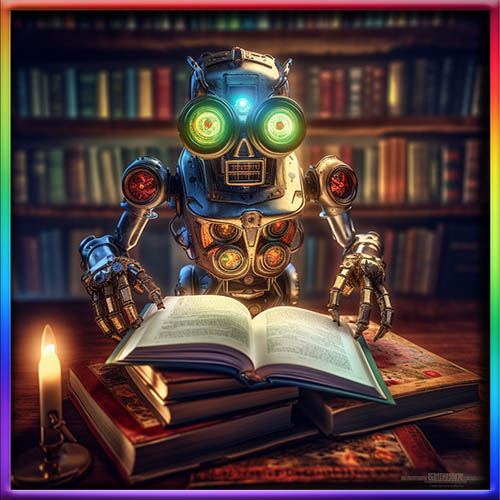
Q: What is ChatGPT?
A: ChatGPT is a large language model developed by OpenAI that can generate natural language text based on prompts provided by the user.
Q: How can ChatGPT be used to improve understanding of English literature?
A: ChatGPT can be used to analyze and generate summaries of literary works, provide contextual information, and generate questions for further exploration.
Q: Can ChatGPT replace critical thinking and analysis?
A: No, ChatGPT should be used as a tool to aid in analysis and understanding, but critical thinking and analysis should still be conducted by the student.
Q: How can ChatGPT assist with academic writing?
A: ChatGPT can assist with generating ideas and structuring essays, suggesting alternative vocabulary, and providing feedback on grammar and syntax.
Q: Can ChatGPT write essays for me?
A: No, ChatGPT should not be used as a replacement for original thought and analysis. It should be used as a tool to assist in the writing process.
Q: Can ChatGPT check for plagiarism?
A: Yes, ChatGPT can analyze a piece of text for similarities to other published works, helping to ensure that the final product is original and not plagiarized.
Q: Is ChatGPT free to use?
A: Some versions of ChatGPT may be available for free use, but more advanced versions may require a subscription or payment.
Q: Can ChatGPT be used for other subjects besides English literature?
A: Yes, ChatGPT can be used for a wide range of subjects, including history, science, and philosophy.
Q: How accurate is ChatGPT in generating natural language text?
A: ChatGPT’s accuracy in generating natural language text depends on the prompt provided and the complexity of the task.
Q: How can I integrate ChatGPT into my research and writing process?
A: ChatGPT can be used to assist in brainstorming, organizing ideas, developing arguments, proofreading and editing, and checking for plagiarism.
Q: Is it ethical to use ChatGPT for academic writing?
A: Yes, as long as ChatGPT is used as a tool to assist in the writing process and not as a replacement for original thought and analysis.
Q: Can ChatGPT understand and analyze poetry?
A: Yes, ChatGPT can analyze and provide feedback on poetry, although its analysis may not be as nuanced as that of a human reader.
Q: How can I evaluate and refine ChatGPT’s suggestions for my writing?
A: ChatGPT’s suggestions should be evaluated critically and refined based on the student’s own standards of quality and academic rigor.
Q: Can ChatGPT improve my English language skills?
A: ChatGPT can assist in identifying and correcting grammatical errors and suggesting alternative vocabulary, which can help to improve English language skills over time.
Q: Where can I learn more about trancework materials as developed by Prof. Phillips?
A: Of course, those wishing to explore even more may consider learning packages such as our ErosPsyMagick+ program at https://briandavidphillips.net/erospsymagickplus which is of particular interest as it has everything rolled into one comprehensive package . . . core skills, metaphysical magickal psychic, and eroticatrance ecstatic states.
You Can Learn More
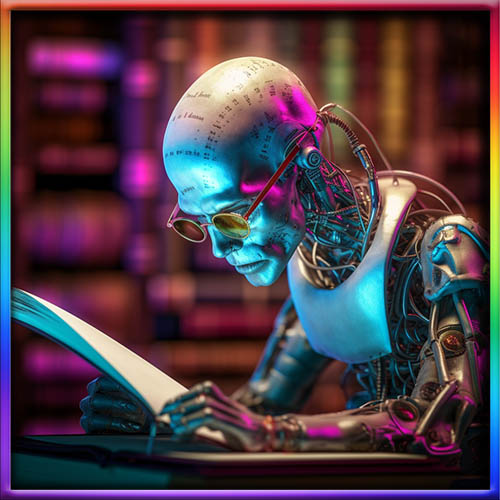
If you would like to learn more about using artificial intelligence and learning, see my essay on Using AI to Practice English Conversation Skills at https://briandavidphillips.net/2023/04/05/ai-efl-conversations.
Also, if you would like to learn more about using hypnosis techniques, consult our Core Skills program and other products found in our online store at https://briandavidphillips.net/store (you may wish to check out our package programs for even more value).
Our ErosPsyMagick+ program at https://briandavidphillips.net/erospsymagickplus is of particular interest as it has everything rolled into one comprehensive package . . . core skills, metaphysical magickal psychic, and eroticatrance ecstatic states.
If you’re in Taiwan and interested in hypnosis, check the services page linked to in the top left sidebar. Not in Taipei? Check the store for recordings in the same menu area as well as links to lots and lots of info and goodies. Of course, browsing this site will bring you to a digital ton of positive resources on a wide variety of topics as well.
Live Trance and Prosper,
Brian David Phillips
Trance Wizard
www.BrianDavidPhillips.net
Tarot Decks and More
https://www.makeplayingcards.com/sell/wakingdreams









